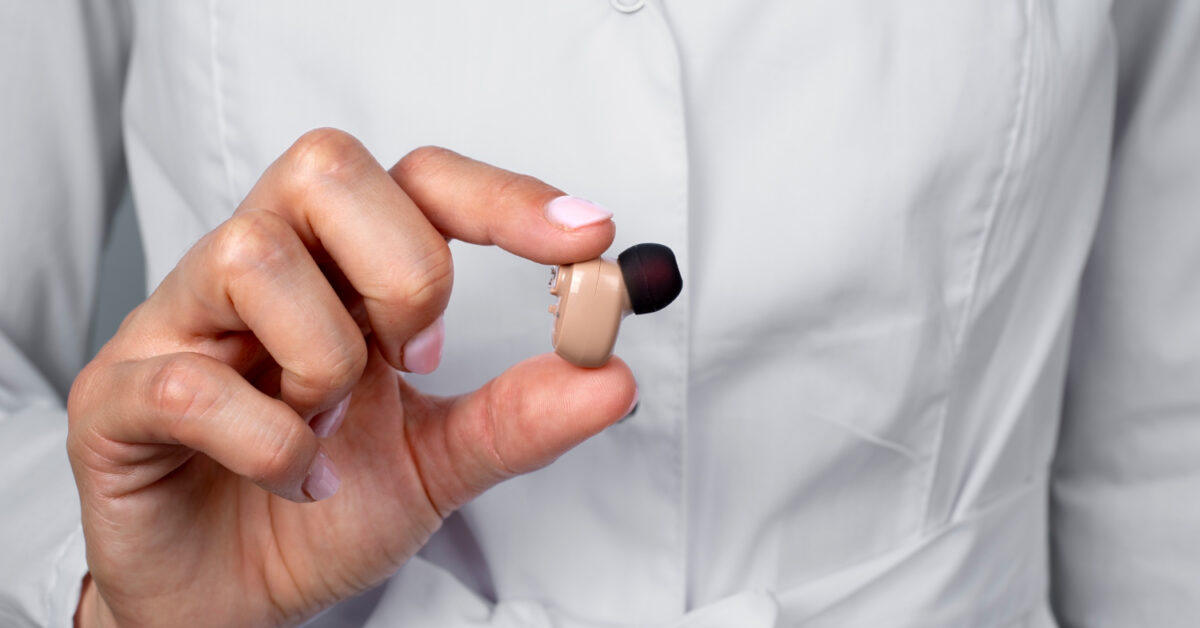Rechargeable Hearing aids have several advantages. For starters, rechargeable batteries last longer, are much cheaper to purchase and are easier to integrate into the user’s lifestyle. In addition, disposable batteries are often easy to drop and can be a safety hazard for pets.
Disposable Batteries Cause Environmental Problems.
Hearing aids often use disposable batteries. This is a significant problem because batteries have a toxic environmental effect. This waste can affect animals and humans and compromise the food and water chains. Although battery waste is relatively small, the cumulative effect on the environment is significant.
Approximately 1.4 billion disposable hearing aid batteries are thrown away annually in the United States. This number is expected to rise in the coming years as more people use hearing aids. Many hearing aid batteries contain zinc-air button cells, while others contain silver and mercuric oxide. When disposed of in the trash, these batteries break down and release dangerous heavy metals into the soil and groundwater. Additionally, disposed hearing aid batteries release toxic smoke into the air.
Disposable hearing aid batteries can also be dangerous when ingested. That’s why hearing aid users should try to use hearing aid rechargeable batteries. Rechargeable batteries are safer and prevent the need for carrying spare batteries in the pocket. But before changing batteries, users should ensure that they recharge them promptly. In addition, users should avoid premature use of hearing aid batteries, as this can lead to reduced battery life.
Lithium-ion Batteries Last Longer.
Lithium-ion batteries are a relatively new technology, but their benefits have already made them popular for hearing aids. They are light and provide a longer charge than other rechargeable batteries. However, lithium-ion batteries are relatively inexpensive compared to other rechargeable batteries.
The main benefit of Li-ion hearing aid batteries is that they don’t need to be replaced as often. This is because Li-ion hearing aid batteries are sealed inside a protective casing, which prevents dirt, sweat, and moisture from getting into the device. Another benefit is that Li-ion hearing aid batteries are more accessible to charge than traditional rechargeable batteries. With traditional rechargeable batteries, you must carefully align the contacts with charging the battery fully.
Another significant benefit of Li-ion hearing aid batteries is their longer life span. Rechargeable hearing aids that use lithium-ion batteries must be placed in a remarkable charging base when not in use. These batteries last up to a year. This is a massive benefit for the environment since they do not have to be replaced very often.
They Are More Cost-Effective.
Using rechargeable hearing aids can save you money on batteries. Most of these micro-batteries can last for up to a year. It costs less than $20 to buy a three-year supply of batteries for two hearing aids. This means you can save a lot of money and avoid having to replace batteries constantly.
However, rechargeable hearing aids are not for everyone. For example, these devices may be less convenient if you have an active lifestyle. For instance, if you’re an avid hiker, you may need access to a wall charger. However, they are becoming more affordable as manufacturers release models with rechargeable batteries. Rechargeable hearing aids are still available in limited styles, with the majority being receiver-in-the-ear models.
Another advantage of rechargeable hearing aids is that they’re more convenient and easier to integrate into your life. They’re also easier to replace since batteries don’t have to come out of your hearing aid. Rechargeable hearing aids also tend to be more environmentally friendly.
They are Easier to Integrate.
Rechargeable Hearing aids are more convenient and easy to integrate into the daily routine of a hearing aid wearer. Rechargeable hearing aids are also easy to dispose of. Rechargeable hearing aids only require an overnight charge to recharge. Rechargeable hearing aid batteries are safer for the environment.



